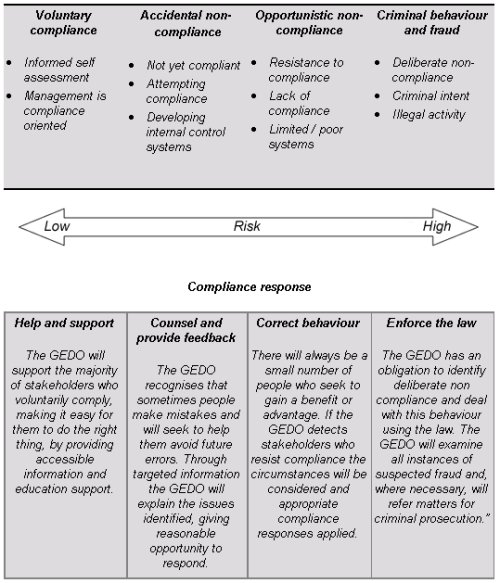In a timely reminder of looming reporting deadlines for liable entities and a wake-up call for those still in the dark about new greenhouse reporting laws, the Government has just released a policy statement for how the 'carbon police' will be approaching recalcitrant and non-compliant companies in the inaugural year of the NGER Scheme.
With the ongoing political controversy surrounding the Government's proposed emissions trading scheme, (the Carbon Pollution Reduction Scheme – CPRS), the new laws mandating collection and reporting of greenhouse emissions and energy data by the majority of large Australian companies have remained largely in the shade.
Focusing on emissions collecting and reporting rather than actual emissions reduction, the National Greenhouse and Energy Reporting Scheme (NGER Scheme) (which is made up of an Act as well as regulations and a technical determination) has not received the attention it probably deserves from the nation's media and some businesses.
The NGER Scheme has caused a significant new compliance challenge for many companies, particularly those in sectors not accustomed to reporting their emissions data such as the property, manufacturing and the building and construction industry. Many business operators have likened the new obligations under the NGER Scheme to the occupational health and safety 'compliance revolution'.
We have written previously about the wide scope and complex application of the NGER Scheme. Click here to read our September 2008 article on "The new carbon compliance headache for companies".
Important Deadlines
The deadline for liable entities to register is 31 August 2009 and the first report must be submitted by 31 October 2009. The report must disclose data from the relevant activities in the period from 1 July 2008 to 1 July 2009.
The Carbon Police And Enforcement
The new Compliance and Enforcement Policy (Policy) recently released by the Department of Climate signals that the Government recognises the significant compliance issues facing companies in applying the 'one-size-fits-all' legislation to all of the activities of its corporate group. Having said that, the Policy also makes it clear that opportunistic and deliberate contraventions of the new laws will not be tolerated.
The Policy sets out the principles that the Greenhouse Energy Reporting Officer (GEDO), Mr David Rossiter and his authorised officers are going to apply in enforcing compliance by Australian companies with the NGER Scheme in its inaugural year. Our climate change team has previously written about the significant civil penalties for infringements and the wide powers granted to the new 'carbon police' under the NGER Scheme for enforcing compliance.
Click here to read our September 2008 article on "The new carbon police are here – now, how to avoid them".
The Policy states that the GEDO will work closely with State and Commonwealth agencies that have expertise in intelligence gathering and law enforcement and utilise targeted investigations by GEDO authorised officers. Independent audits of registered corporations may also take place.
The following compliance model is taken from the Policy and summarises the potential stakeholder behaviour and the GEDO's appropriate response:
Stakeholder Behaviours And Motivation

What Should Companies Be Doing?
Corporate groups that consider they may meet the threshold under NGERS, should therefore be already collecting data relating to energy consumed, energy produced and greenhouse gas emissions from 1 July 2008 across company organisational structures and determining 'ownership' of those emissions for the purposes of publicly reporting them.
The Compliance and Enforcement Policy makes it clear that those who actively seek to comply with the legislation will not be unfairly targeted by the GEDO. Actively seeking and complying with legal advice may protect your corporate group from exposure to civil and criminal penalties for non-compliance, personal liabilities for CEOs and public disclosure of infringements.
NGERS, should therefore be already collecting data relating to energy consumed, energy produced and greenhouse gas emissions from 1 July 2008 across company organisational structures and determining 'ownership' of those emissions for the purposes of publicly reporting them.
The Compliance and Enforcement Policy makes it clear that those who actively seek to comply with the legislation will not be unfairly targeted by the GEDO. Actively seeking and complying with legal advice may protect your corporate group from exposure to civil and criminal penalties for non-compliance, personal liabilities for CEOs and public disclosure of infringements.
How Gadens Lawyers Can Assist You
We can assist you in applying the legal tests under the NGER Act and the NGER Regulations across your corporate group's activities and contractual arrangements. We tailor compliance plans to the needs of individual companies and synchronise the technical work of energy consultants with the issues of statutory interpretation and strict legal compliance.
Our climate change team can also assist in drafting new clauses for contracts that take the NGER Scheme and other regulatory issues into account. This may help secure a competitive advantage, protect against unnecessary compliance costs for data collection and reporting, and protect against any potential direct or indirect liabilities under a carbon tax or the proposed CPRS in the future.
Ensuring compliance requires corporate groups to take formal steps now to obtain legal advice and put in place internal processes and procedures to ensure compliance.
|
Sydney |
||
|
Scott Laycock |
t (02) 9931 4865 |
e slaycock@nsw.gadens.com.au |
|
Evan Economo |
t (02) 9931 4950 |
e eeconomo@nsw.gadens.com.au |
The content of this article is intended to provide a general guide to the subject matter. Specialist advice should be sought about your specific circumstances.

